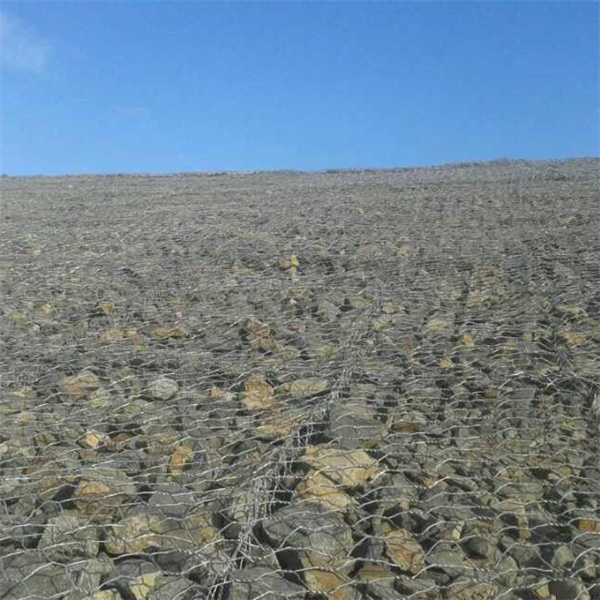Nov . 21, 2024 08:44 Back to list
free standing gabion wall
The Benefits and Applications of Freestanding Gabion Walls
Gabion walls have garnered significant attention in landscaping, civil engineering, and environmental management due to their versatility and effectiveness. A freestanding gabion wall, constructed from wire mesh filled with stones or other materials, serves multiple purposes, including erosion control, noise reduction, aesthetic improvements, and structural support. This article delves into the benefits, applications, and considerations associated with freestanding gabion walls.
Understanding Gabion Walls
Gabions, derived from the Italian word gabbione, meaning big cage, have been utilized for centuries. Traditionally, these structures were employed in military fortifications, but their modern applications are diverse. A freestanding gabion wall is typically built as an independent structure without being anchored to a foundation, making it suitable for a variety of environments. The wall comprises stacked cages filled with rocks, gravel, or other materials, offering considerable weight and stability.
Benefits of Freestanding Gabion Walls
1. Erosion Control One of the primary advantages of gabion walls is their ability to combat soil erosion. They can be strategically placed along riverbanks or slopes to prevent soil from washing away during heavy rains, providing a robust barrier that allows water to flow through while retaining soil.
2. Aesthetic Appeal Freestanding gabion walls can enhance the visual appeal of gardens, parks, and commercial landscapes. The stone-filled cages can be customized with various materials, colors, and textures, allowing for creative designs that blend with nature.
3. Cost-Effectiveness Compared to traditional masonry or concrete walls, gabion walls are often more economical to construct. They require less specialized labor and materials, making them an attractive option for budget-conscious projects.
4. Environmental Sustainability Gabions are environmentally friendly as they often use natural materials and promote biodiversity. Over time, vegetation can grow through the gaps in the stones, further aiding in erosion control and enhancing habitat for local wildlife.
5. Flexibility and Adaptability Freestanding gabion walls can withstand immense forces, making them suitable for various applications, including landscaping, noise barriers, and flood prevention structures. Their design allows for easy modification, ensuring they can adapt to changing environmental conditions.
Applications of Freestanding Gabion Walls
free standing gabion wall

Freestanding gabion walls find a myriad of applications across different sectors
- Landscaping Garden designers and architects utilize gabions to create unique features such as seating areas, garden beds, and retaining walls. Their textured appearance can serve as a backdrop for planting, adding depth and interest to outdoor spaces.
- Civil Engineering In infrastructure projects, gabion walls are employed along roads and highways to provide support and stability in high-risk erosion areas. They are also used in drainage systems to improve water management.
- Environmental Conservation Conservationists harness gabion walls to restore natural landscapes and manage riverbanks. By providing a porous barrier, these walls allow for natural water flow, minimizing flooding risks while protecting indigenous flora and fauna.
Considerations When Building Freestanding Gabion Walls
When planning to construct a freestanding gabion wall, several factors must be taken into account
- Site Assessment Conducting a thorough analysis of the site is crucial. Understanding soil type, drainage patterns, and water flow will inform the design process.
- Material Selection Choosing appropriate materials for the gabions is vital for durability and aesthetics. Local stone can enhance the natural look, while recycled materials can promote sustainability.
- Regulatory Compliance Depending on the location, there may be regulations governing the construction of gabion walls. It is essential to check with local authorities to ensure compliance.
In conclusion, freestanding gabion walls offer a blend of functionality, aesthetic value, and environmental benefits. Their versatility makes them suitable for a wide range of applications, positioning them as a preferred choice for homeowners, landscapers, and engineers alike. As awareness of sustainable practices grows, the use of gabion walls is likely to increase, contributing positively to both the environment and community landscapes.
-
Why PVC Coated Gabion Mattress Is the Best Solution for Long-Term Erosion Control
NewsMay.23,2025
-
Gabion Wire Mesh: The Reinforced Solution for Modern Construction and Landscape Design
NewsMay.23,2025
-
Gabion Wall: The Flexible, Seismic-Resistant Solution for Modern Landscaping and Construction
NewsMay.23,2025
-
Gabion Wall Solutions: The Durable, Decorative, and Affordable Choice for Every Landscape
NewsMay.23,2025
-
Gabion Basket: The Durable and Flexible Alternative to Traditional Retaining Walls
NewsMay.23,2025
-
Gabion Basket: The Proven Solution for Slope Stability and Flood Control
NewsMay.23,2025
-
Versatility of Chain Link Fence Gabion
NewsMay.13,2025






